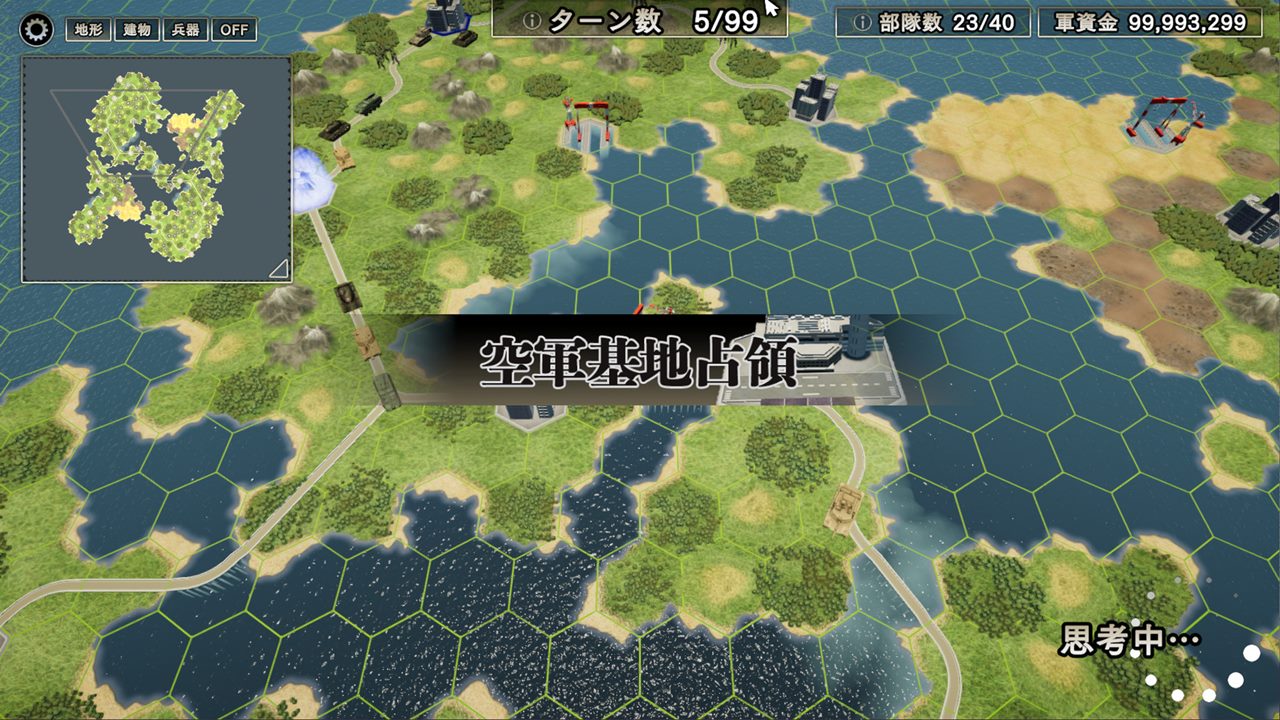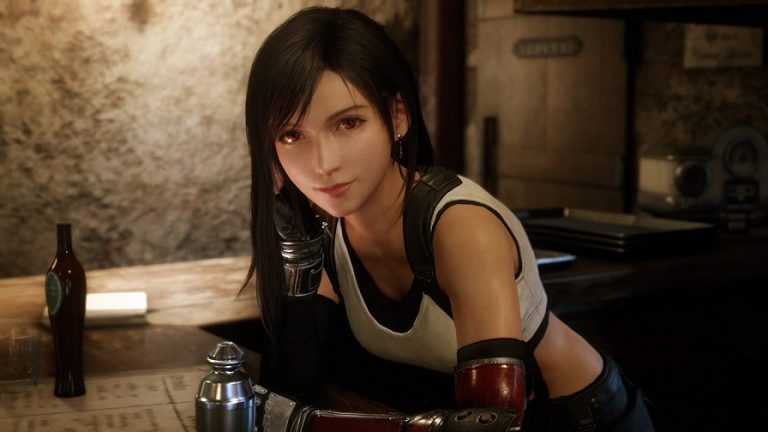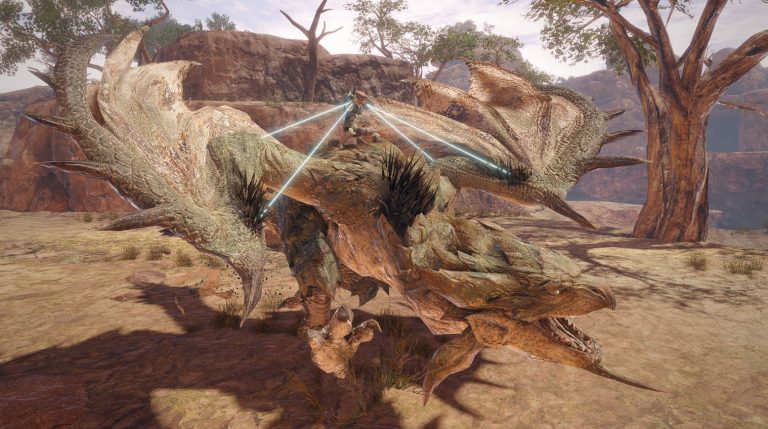Written by. Nick Mosier based on the original Japanese article (original article’s publication date: 2022-06-20 15:59 JST)
The Steam version of SystemSoft Beta’s Daisenryaku SSB (Great Strategy Supreme Strategic Battles) is scheduled to launch on June 30 (JST), but it’s the scenarios in the game that have gamers in Japan buzzing. The touchy subject matter for the game’s playable scenarios started gathering attention after Twitter user Zunko posted a screenshot from the game’s Steam page.
Daisenryaku SSB is a tactical simulation game in the Daisenryaku series which was originally developed by SystemSoft Alpha. In the game, players command units such as tanks and aircraft on missions to take control of the battlefield. This latest release in the series has incorporated 3D graphics into many of its elements including battle scenes and was released in Japan both physically and digitally at the beginning of this year.
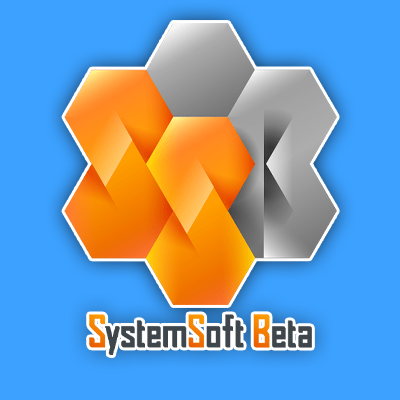
The game also comes with different scenarios for players to enjoy. And this batch of scenarios is getting attention for being rather intense. The first one is called Crisis in the Straits of Taiwan and sees a Taiwan that’s been abandoned by both the United States and Japan fighting alone against China for their independence. Players control the Taiwanese army.
The second is called Korea Unites Under Communism. In this scenario, North and South Korea have been united under communist rule and human rights violations have begun. The United Nations calls for an intervention, but countries are hesitant to dispatch troops. Players take control of the Japan Self-Defense Force as Japan is the only country to get directly involved.

The third scenario is called Taking Back the Senkaku Islands. The Chinese army has taken over the islands and players control the Japan Self-Defense Force on a mission to take them back. The fourth is called Ainu Independence. Hokkaido, Japan has been purchased by Chinese capital and Russia attacks under the pretext of maintaining order. Players control the Japan Self-Defense Force.
The fifth is called American Civil War. The Democratic Party has turned to communism and controls the regular military in a fight against the rebelling Republican Party comprised of citizens and the National Guard. Players control the rebel Republican Party force.
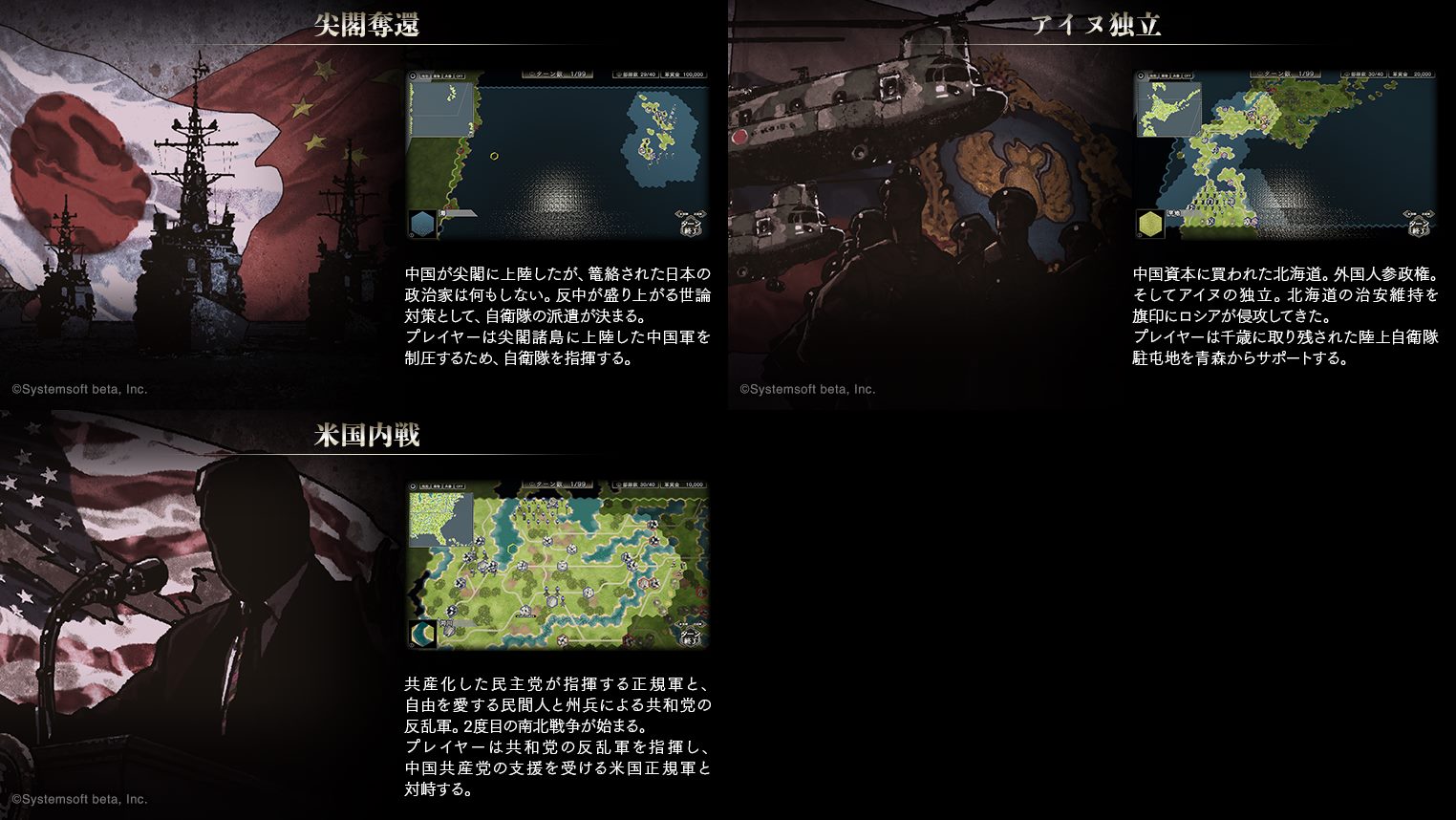
SystemSoft Beta introduces their scenario mode with, “Includes 5 scenarios based on the latest international situations! Protect Japan’s future!” and it’s not a lie to say each one incorporates topical subject matter. They also don’t pull any punches with the paid DLC Battle for Takeshima, which like the Senkaku Islands, is currently under dispute as to which country it belongs to.
The game doesn’t simply incorporate current events but takes a rather provocative approach by using them in a war simulation game. And by looking at which forces players get to control, we also get an interesting hint at SystemSoft Beta’s views on the matters.
But this isn’t the first time SystemSoft Beta has implemented current world affairs into their games. Especially when you consider their Gendai Daisenryaku (Modern Great Strategy) series. One example is their tagline for the 2001 entry in the series which can be translated to “The worst-case scenarios that could possibly occur in reality.” The game featured a scenario revolving around the second Korean war, a scenario called Clash of Japan and Korea! Occupy Seoul, and more. The series continued to include hot-button topics in their games after that as well.
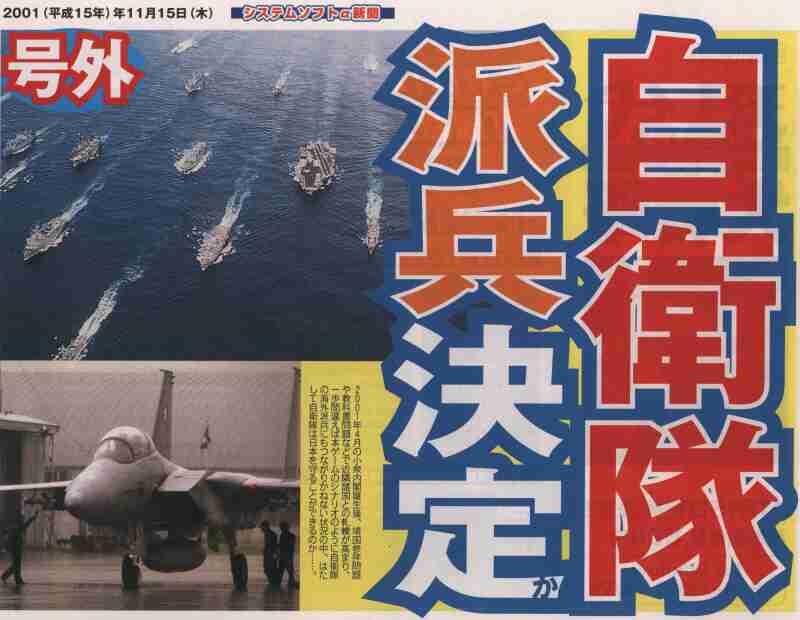
Things are made a little milder for the console releases, though. The Gendai Daisenryaku series obfuscates country names on the console versions by using initials instead, so Japan is “J Country”, China is “C Country”, Korea is “K Country”, and the United States is “A Country” which somewhat blurs reality.
While it’s not exactly hard to guess what the initials mean, not directly using country and organization names at least makes it less straight forward at first glance. This in turn strengthens the fictional aspect of the game. While only speculation, it’s likely done because console makers want to avoid any political trouble.
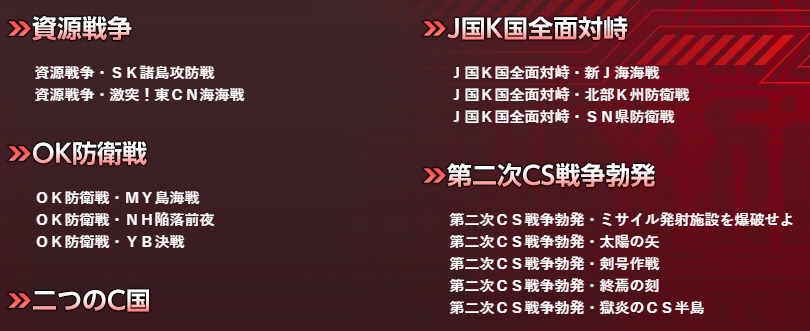
This leaves the PC version as the only one that won’t get any interference making it possible to use actual country and organization names. Daisenryaku SSB is the second title in the series to come to Steam while none of the past Gendai Daisenryaku games have been released on the platform. Previous Steam releases from the developer including Storm Over the Pacific 6 and Daisenryaku Perfect 4.0 didn’t score so well with players. Besides the scenarios, it will be interesting to see the extent gameplay is polished up for interested newcomers and those returning to the series.
The Steam version of Daisenryaku SSB can be found here.

